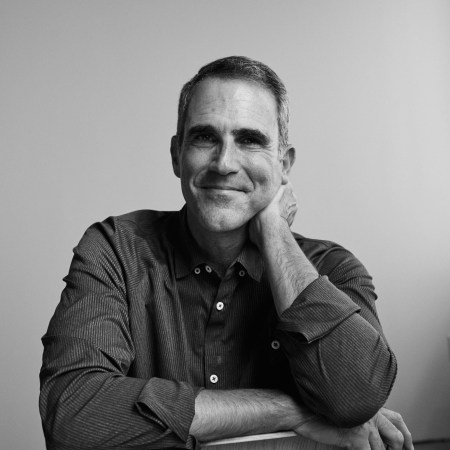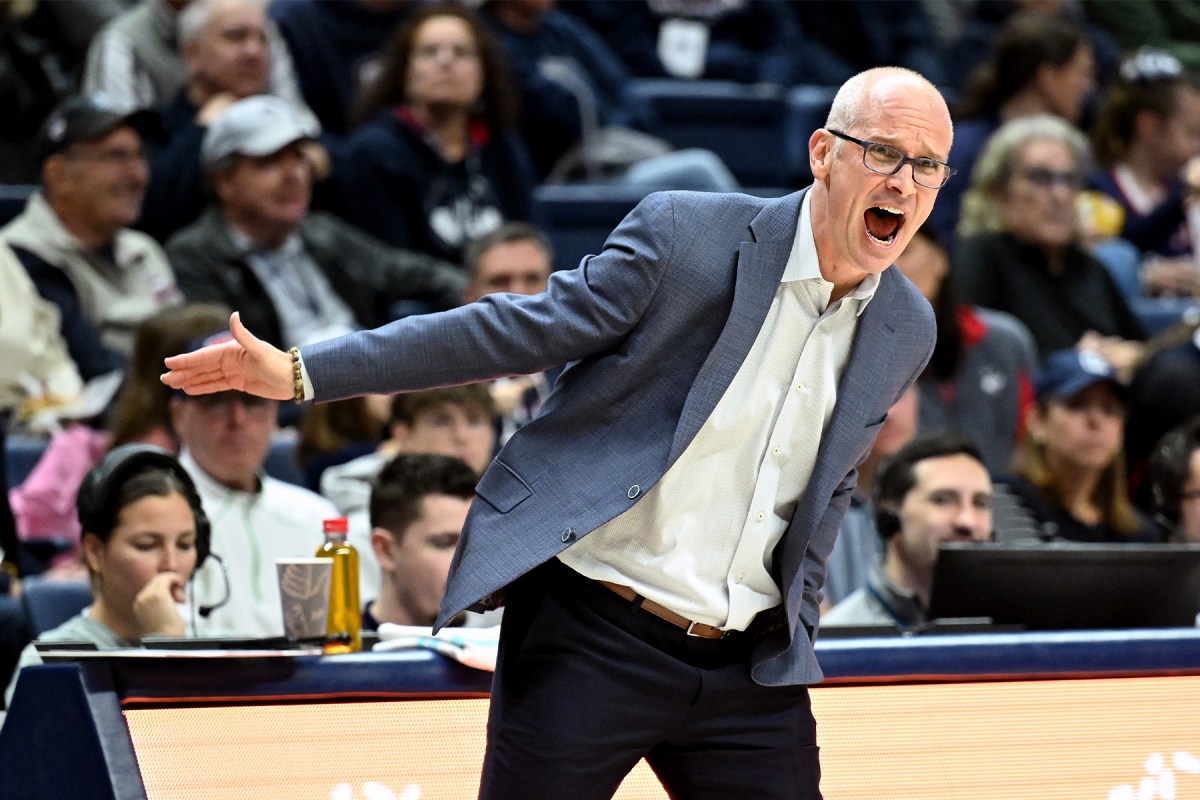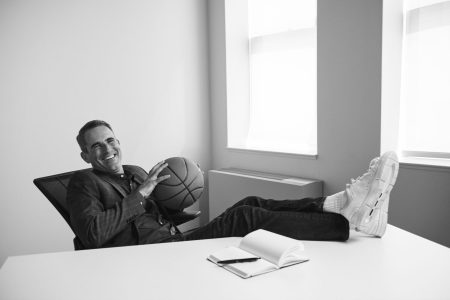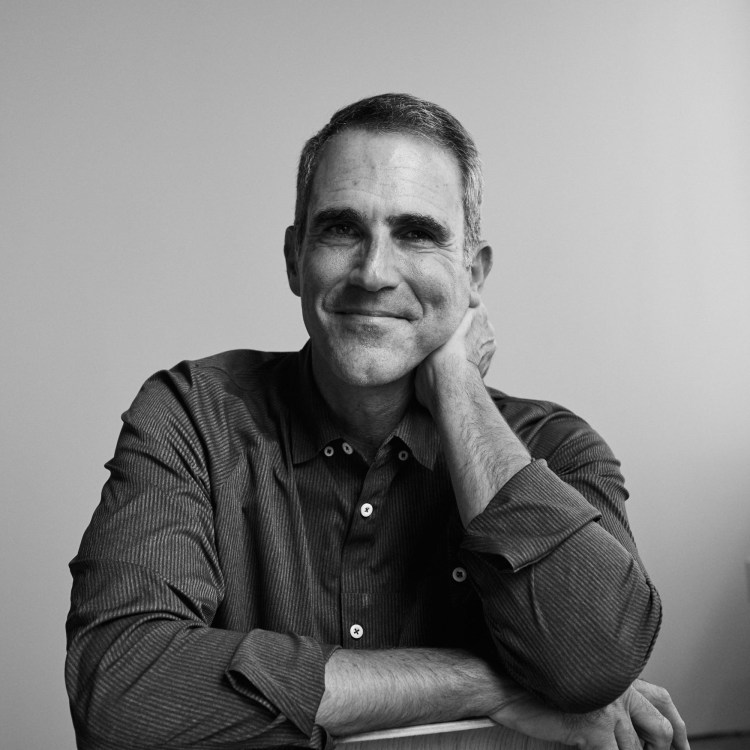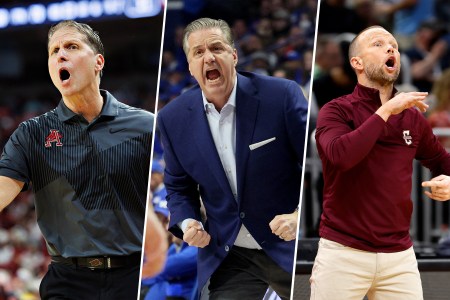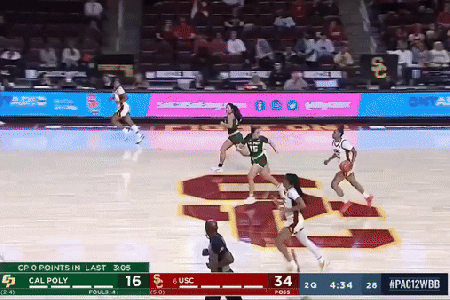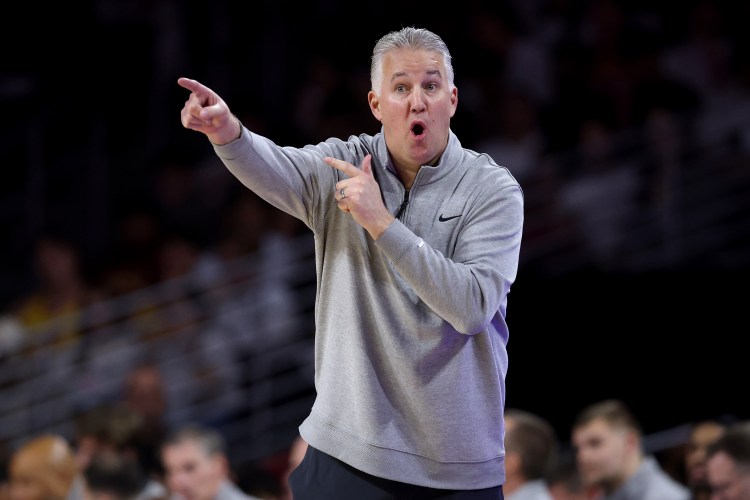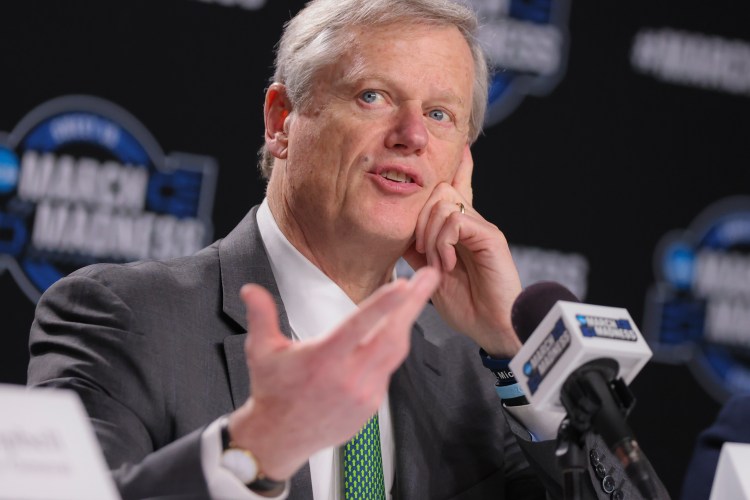The UCLA Health Training Center in El Segundo, CA, where the Los Angeles Lakers practice, is a nice facility, but it’s not all that distinctive from those used by other NBA franchises, and even some big-time colleges. That is, until you walk into the main gym, where the walls are adorned with banners brandishing the names of Laker legends. West. Chamberlain. Abdul-Jabbar. Johnson. O’Neal. The most alluring is the one dedicated to the late Kobe Bryant, which is illuminated by a spotlight all day and all night, all year long.
By the time Dan Hurley and his wife, Andrea, walked into that gym on June 7, they already had been dazzled by the Lakers’ efforts to make him their next head coach. When they saw those names hanging on the walls, they went from taking in the big picture to homing in on practical details. “We’re thinking about not just where are we going to live, but like, how are we going to get my dad (who lives in New Jersey) to games?” Hurley recalls in an exclusive interview with Hoops HQ. “You look at the enormity of the Laker brand, it’s one of the best sports brands in the world. We would never have gotten involved in the process in such a public way unless we were really into it.”
That reverie was nowhere to be found in late October in Storrs, where Hurley was preparing his UConn Huskies for the upcoming season. Hurley was overseeing a basic halfcourt dummy drill, during which his players jogged through a few offensive sets. His usual cussing, caterwauling and cajoling was not having the desired effect, so he moved to his patented last resort. Hurley laid down on the court, put his hands over his face, and refused to speak for a full minute.
Acts of petulance are not uncommon for Hurley, especially in the preseason. “This is a tough time of year to coach because there’s ten players on the court, so you’re never happy,” he says. “If the offense just executed something good, then the defense just made a mistake.”
Hurley’s courtship with the Lakers may feel like a distant memory, but his decision to turn the team down will have reverberations throughout this winter and beyond. As Hurley went through his very public week-long interview, many of his peers were certain he would say yes, if only to escape the pressure of having just won back-to-back NCAA championships for the first time since 1992. He’s got nowhere to go but down, right? That reasoning, however, fundamentally misunderstands who Dan Hurley is, why he coaches, and most important, why he wins.
The little hissy fit he pulled by lying on the floor? That’s his happy place. Hurley isn’t just unafraid of pressure, he thrives in it. He is a famously tortured soul, but the one thing he knows for sure about himself is that he’s not content unless he’s miserable. Now he’s ready to apply that unrelenting focus towards his goal of trying to become the first coach to win three straight NCAA championships since John Wooden won seven in a row at UCLA from 1966-73.

“When I hear athletes or coaches try to take pressure off themselves to have a championship season, it kind of rubs me the wrong way,” Hurley says. “We had an NBA scout in here to watch practice the other day, and he told someone on my staff, ‘He’s not going to be able to keep this up.’ People just don’t understand the mindset of the people in this organization right now. I owe it to the people that hired me to show up for work every day like I’ve never won anything.”
Hurley’s decision to turn down the Lakers’ offer was closer than most realize. How close? When he left the house on the morning of June 10 to announce his decision, his wife Andrea wasn’t 100 percent sure what he was going to say. In the end, they both knew that staying was the right move. Yes, Hurley could have made more money if he had left (although one can’t help but wonder what he would have said if the Lakers had stretched its budget beyond the six-year $70 million offer they extended). But that would also have meant giving up the part of the job he loves the most. “I realized that I’m blessed to have an opportunity to really coach the way I want to coach,” he says. “The impact you have with this age, the way you could be a small part of (the players’) lives changing for the better, that’s a feeling that becomes very addictive. It’s something that becomes a part of what gets you up in the morning. And you don’t get that in pro sports.”
The emphasis on relationship building has long fueled Hurley’s approach to roster rebuilding. Facing the specter of losing his entire starting lineup from the 2024 champs — two starters graduated and the other three declared for the NBA draft, although 6-8 junior forward Alex Karaban would eventually withdraw – Hurley had to decide whether to dip deeply into the transfer portal or double down on his reserves and incoming freshmen. He faced the same dilemma the year before when he lost three starters and the top two reserves off the ’23 champs. In that case, he brought in just one transfer, 6-4 super senior guard Cam Spencer from Rutgers. This time, Hurley only signed two – 6-3 junior guard Aidan Mahaney (from Saint Mary’s) and 6-10 junior center Tarris Reed (Michigan).
Welcome to Hoops HQ: A Letter from Seth Davis
We’re pumped to have you on the squad!
Just as 7-2 sophomore center Donovan Clingan and 6-6 freshman guard Stephon Castle rose to the occasion and delivered a second title, Hurley is hoping that 6-3 sophomore guard Solo Ball, 6-10 senior center Samson Johnson, 6-2 super senior guard Hassan Diarra and 6-7 freshman forward Liam McNeely will likewise form the nucleus of a championship contender. “We bank heavy on player development here,” he says. “We bank heavy on chemistry and culture and believing in UConn and relationships. That’s what has allowed us to play the level of basketball we’ve been able to play. There’s a cohesiveness to our teams that you only get when you’ve spent a lot of time together, and when you really believe that there’s a higher sense of purpose to your organization.”
“Every little comment he sees, whether it’s about him, our program, the players, he’ll use that as ammo,” Karaban says. “He’s always saying, these people don’t believe in you, they don’t believe in us. This is my third year with him, and he’s hungrier than ever.”
Hurley loves to project swagger, tinged with a Jordanesque I-took-that-personally search for slights (real or perceived). He spent part of Big East media day complaining that his Huskies were only ranked No. 3 in the AP’s preseason Top 25, and he is constantly feeding his players bites of external disrespect to keep them on edge. “Every little comment he sees, whether it’s about him, our program, the players, he’ll use that as ammo,” Karaban says. “He’s always saying, these people don’t believe in you, they don’t believe in us. This is my third year with him, and he’s hungrier than ever.”
On the other hand, this team has no harsher critic than its head coach. Hurley’s stress levels have gotten so high at times this fall that he has received alerts on his Apple watch warning that he might be having a medical emergency. Andrea has long stopped going to practice, and she is by now accustomed to her husband’s doom-and-gloom assessments. “Every year at this time he tells me, everybody sucks and prepare yourself for a long year,” Andrea says. “So we’re right on track where we always are.”
Even so, following up back-to-back championships brings its own set of stressors. Hurley sees it as his responsibility not only to maintain his own determination, but to continually raise the standards for everyone around him. “My urgency has been taken up from last year because now we’re on top of the mountain,” he says. “People are really locked in on trying to take us down. It’s my job to create a mentality and a mindset that avoids any type of complacency, even at the risk of going overboard and making people a little bit crazy.”
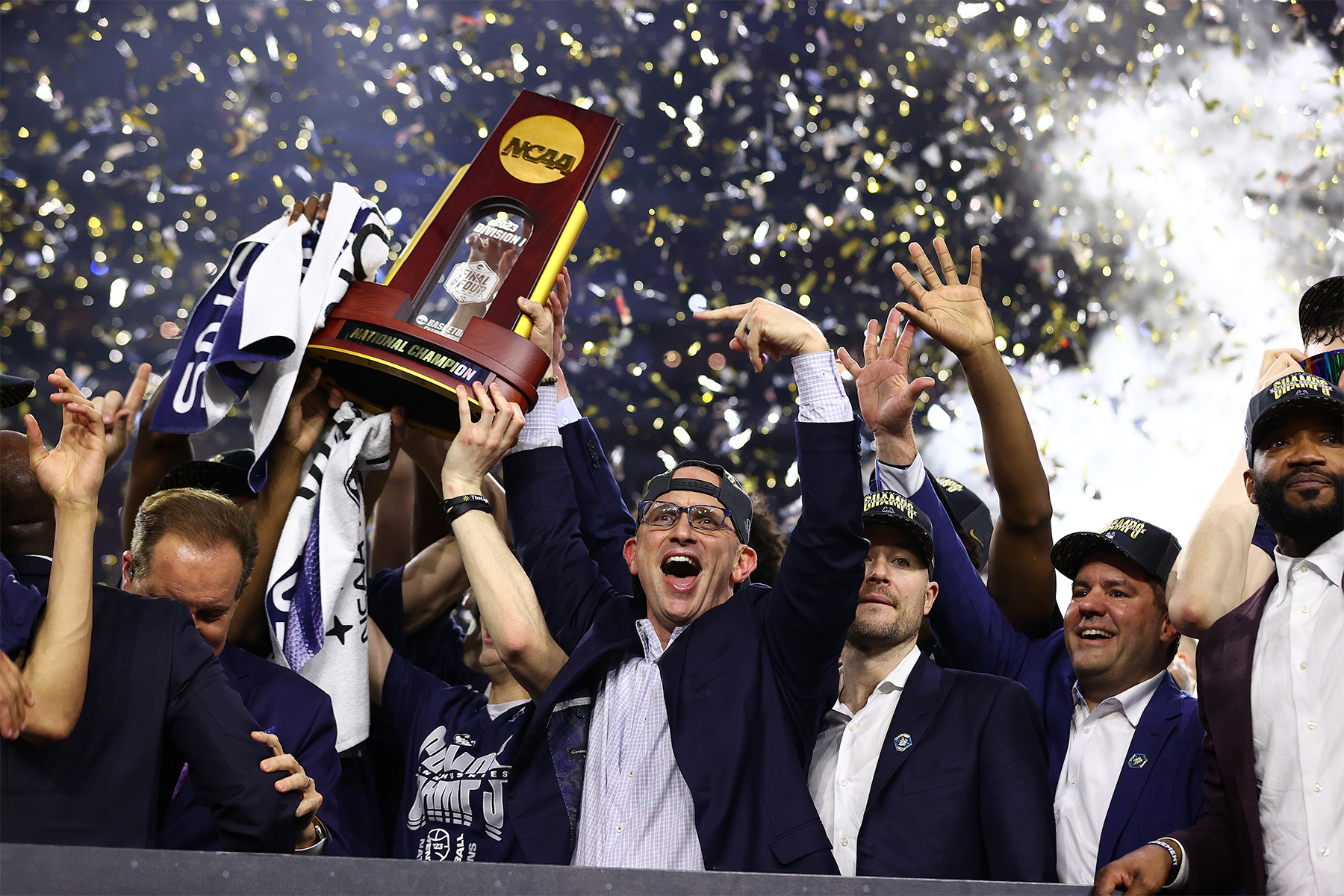
It is one of the many high-class problems that come with winning back-to-back titles. Another is the dramatic spike in demands for Hurley’s time. He’s not one to try to cash in on the speaking circuit, but he does feel obligated to remain accessible. His disinclination to say no is exacerbated by his disorganization. This time last year, Hurley didn’t even have an administrative assistant to answer his phone and oversee his calendar. He has since hired one, although she is currently on maternity leave.
One of the reasons Hurley wants to remain available to the press and public is his continued desire to share his mental health challenges. As the son of a maniacally driven Hall of Fame high school coach and the younger brother of a collegiate national champion and All-American, Dan was so overcome by insecurities as a player at Seton Hall that he had to take a year away from the team during his senior season. He has talked openly about how his neck surgery in 2019 sent him into a tailspin of depression and anxiety. Last fall, he revealed that he suffered a mild panic attack at the New York Stock Exchange, where he was invited to ring the opening bell a few days after winning the 2023 NCAA championship.
Over the summer, Dan and Andrea sat for a lengthy interview with the Graham Bensinger podcast, during which he went into unflinching detail about the protocols and practices he relies upon to manage his issues. “I’ve got a great responsibility to share my story and let people know that the story doesn’t just end when you become successful,” he says. “We’re having a (mental health) epidemic right now in this country, especially with men. Most people look at me and think that somebody like me can’t possibly have concerns about his own well-being that way, and I do. I work at it.”
The dalliance with the Lakers was one more step in that journey of self-realization. Now Hurley can enter the season with renewed clarity. Let his competitors assume whatever they want. As far as Dan Hurley is concerned, he has a new mountain to climb, and nowhere to go but up.
